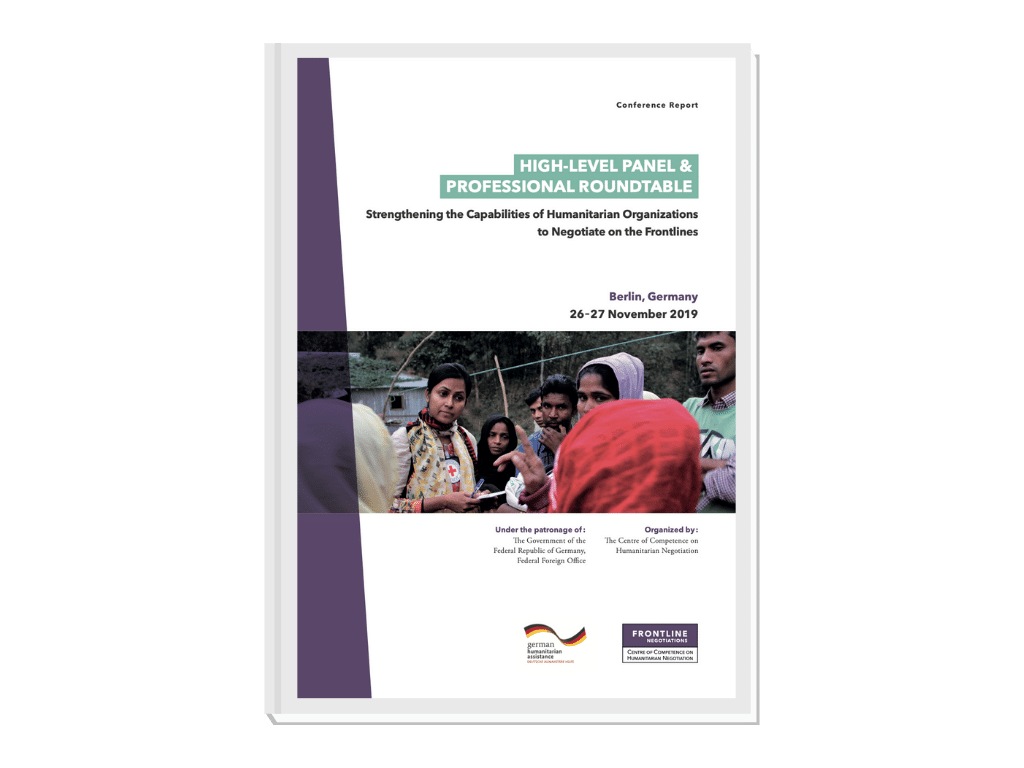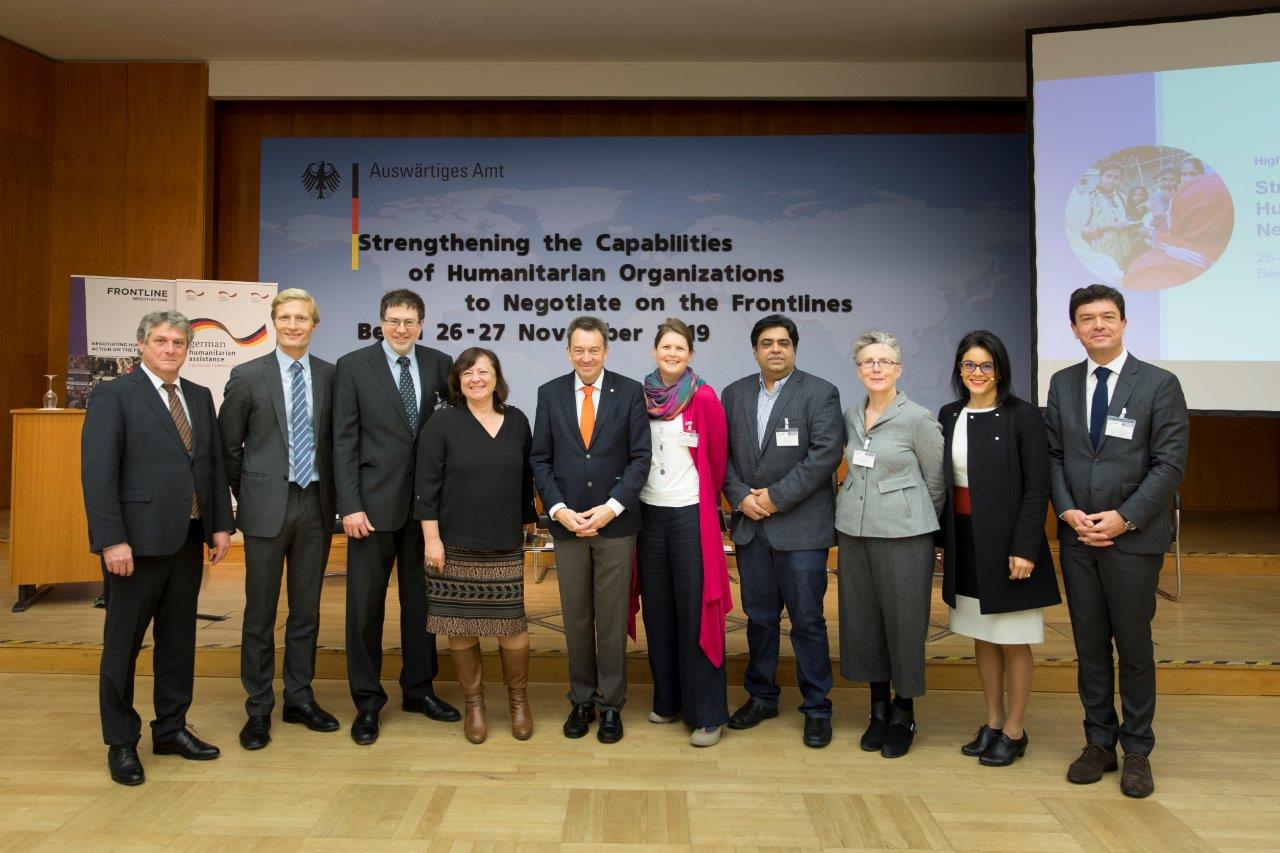
Speakers at the fourth annual meeting in Berlin. (Photo: Photothek)
The ability to negotiate in conflict areas is becoming ever more important. On 26-27 November last year, the German Federal Foreign Office and the CCHN hosted a high-level panel and professional roundtable forum on the subject in Berlin.
The conference brought together frontline humanitarian negotiators, training providers, donor governments and researchers to discuss ways of enhancing the negotiation capabilities of humanitarian organizations.
Bärbel Kofler, Germany’s Federal Government Commissioner for Human Rights Policy and Humanitarian Assistance, emphasized that “Humanitarian workers must not become targets themselves, nor may their access to people in need be impeded”. She went on to explain that this is why we were “taking steps to improve the skills of aid workers to negotiate with the widest possible range of actors in humanitarian crises”.
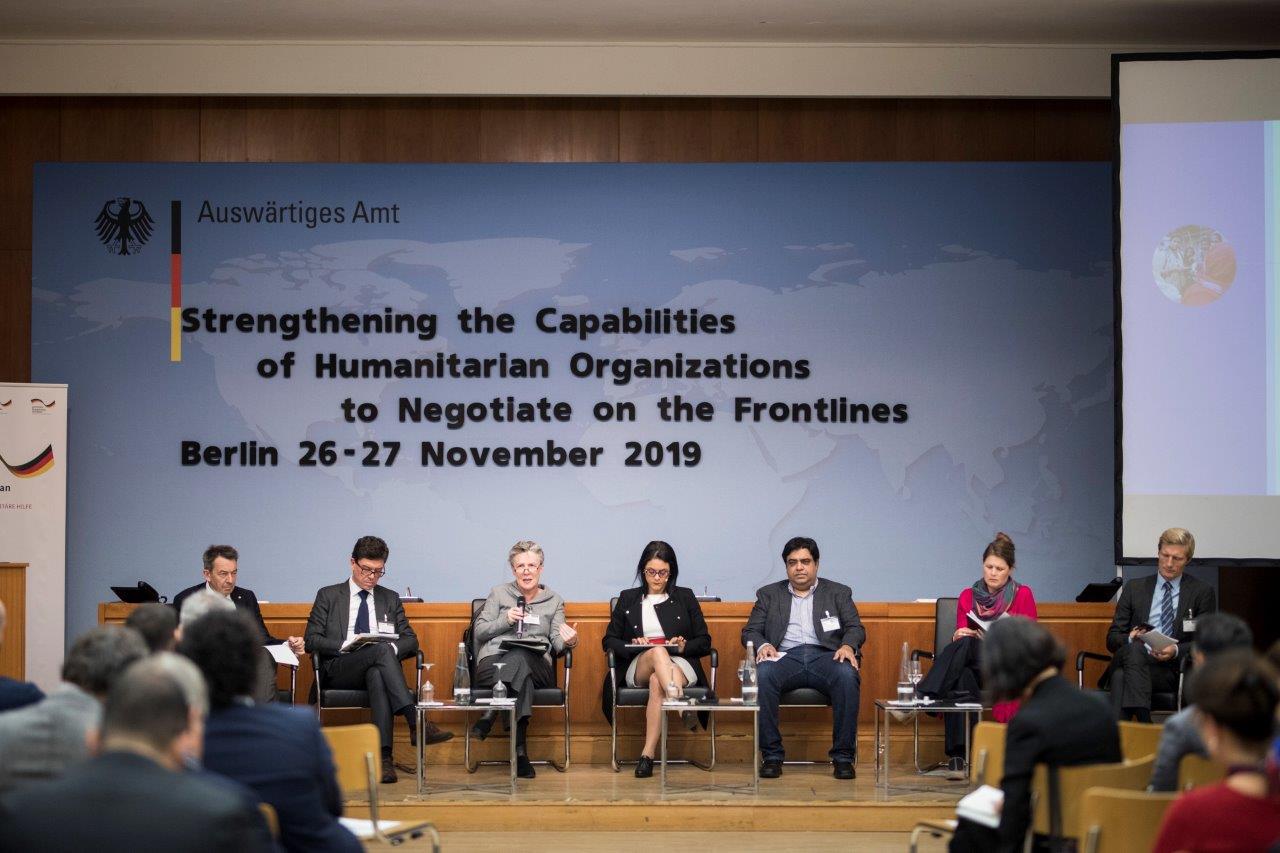
Panellists and the moderator during the high-level session. (Photo: Photothek)
Towards a common vision
Kofler’s keynote speech was followed by a high-level panel discussion regarding a common vision on developing the negotiation capabilities of humanitarians operating in conflict environments.
The panel was made up of leaders from humanitarian organizations, donor governments, and academia.
“Humanitarian negotiation has become a critical aspect of securing access to populations affected by conflicts. The negotiation experience and reflections of field practitioners represent a significant source of expertise that we should harness and further develop”. – Peter Maurer, president of the ICRC.
“As a humanitarian organization more and more present in situations of ongoing violence and conflict, UNHCR considers humanitarian negotiation as essential to our ability to access and to provide protection to refugees and other persons of concern to us”. – Grainne O’Hara, UNHCR Director of International Protection.
“Negotiations on the front line are highly challenging and fraught with dilemmas. In many cases, successful negotiations are required for people to receive the assistance they so urgently need. We are here in Berlin to explore new ways to prepare our teams for these negotiations”. – Rehan Asad, Chief of Staff, WFP.
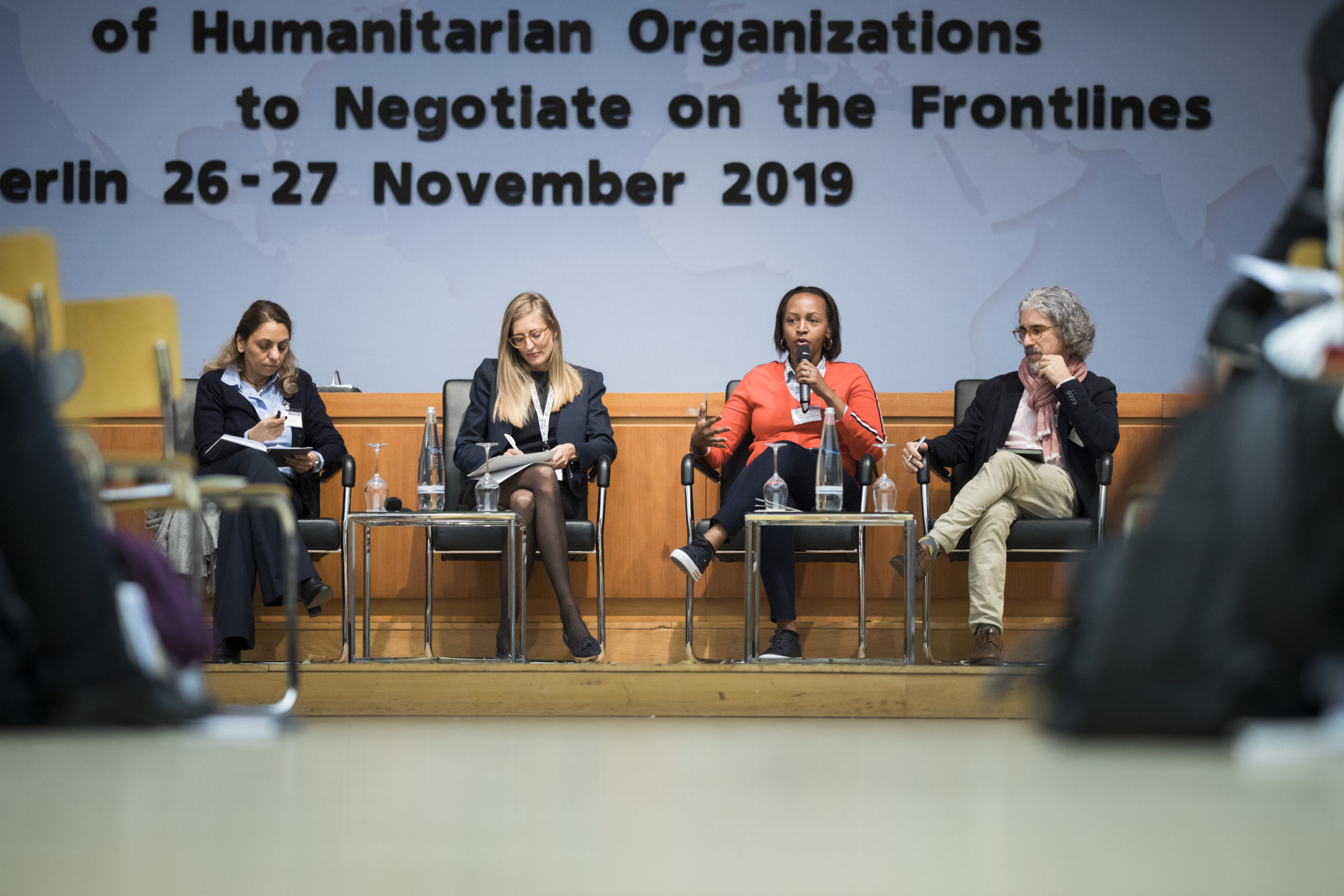
Humanitarian negotiators share their personal stories from the field, illustrating the need to develop negotiation capabilities. (Photo: Photothek)
Voices from the field
In the second part of the conference, committed humanitarian negotiators from WFP, ICRC and UNHCR shared snapshots of their vital front-line negotiations and how they managed to deal with complex situations from a professional and personal perspective.
They highlighted the multitude of negotiation challenges they had encountered, having had little or no prior training on negotiation.
Eleven other field workers echoed their views in pre-recorded video statements.
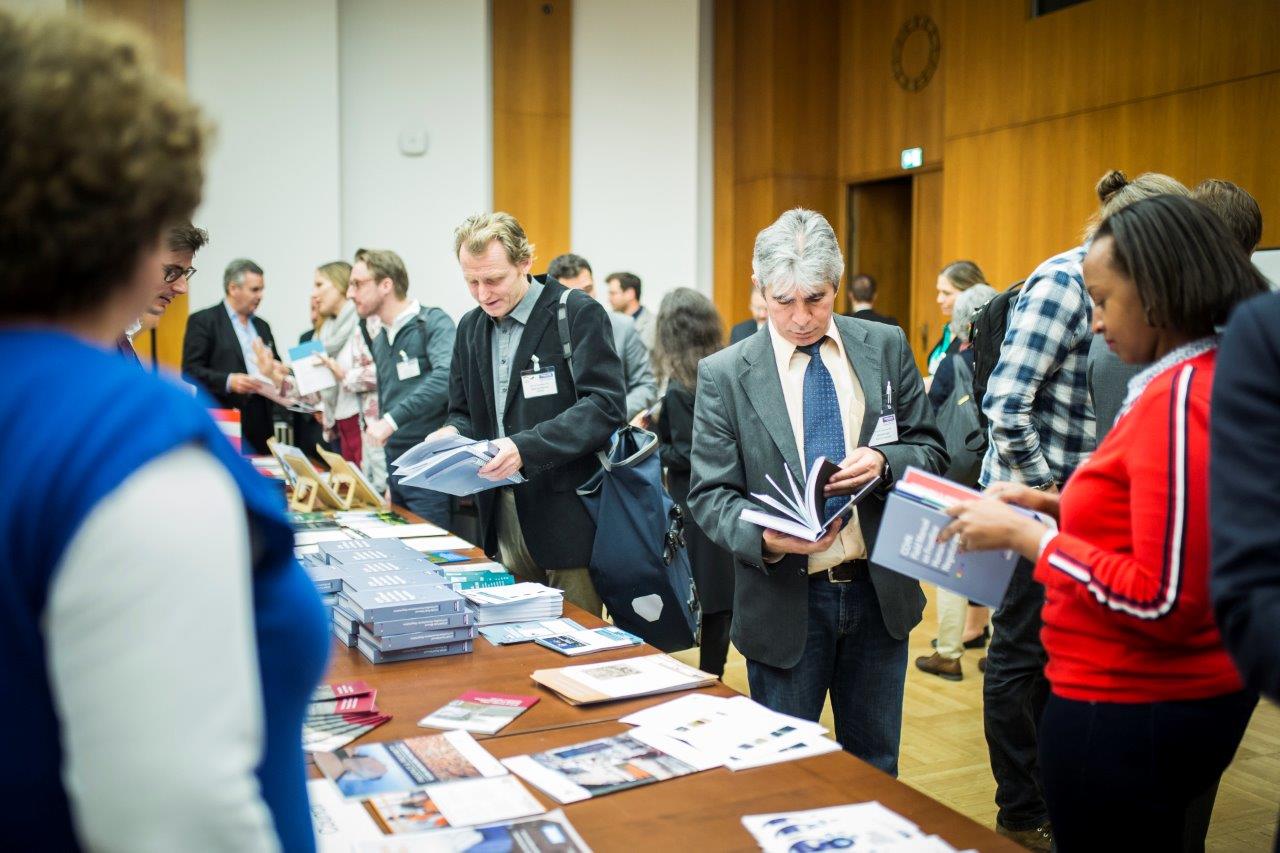
Attendees visited CCHN’s stand to get copies of the new CCHN Field Manual. (Photo: Photothek)
After this session, attendees took part in the launch of the second edition of the CCHN Field Manual and related learning materials on humanitarian negotiation.
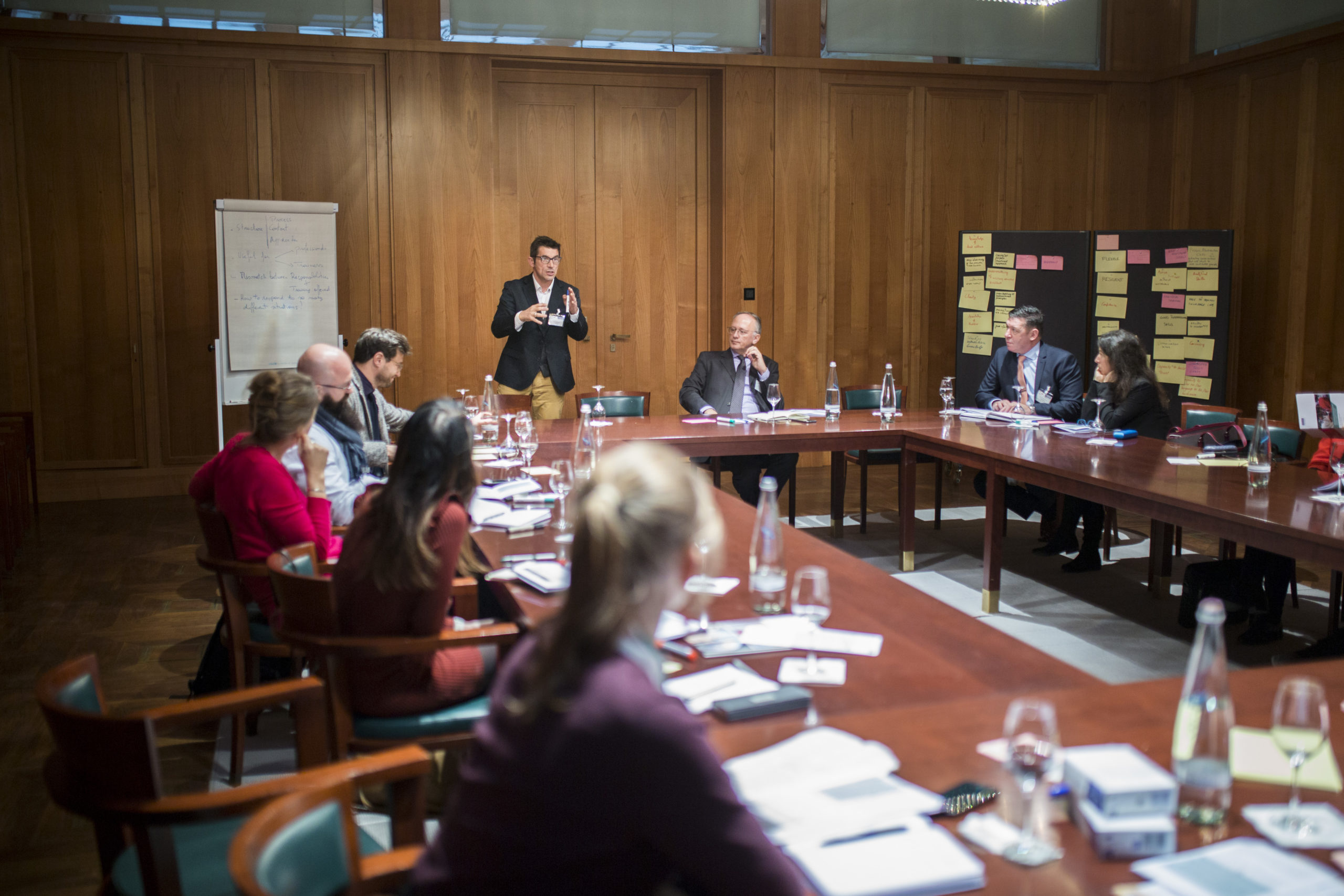
Gathering ideas on humanitarian negotiation from different perspectives. (Photo: Photothek)
Getting everyone involved
The demand for training on humanitarian negotiation has risen steadily in recent years. Training centres and initiatives provide introductory support on negotiation principles and practices, but they are unable to fully meet the demand, especially for field practitioners in remote locations.
The third part of the conference, therefore, facilitated a dialogue between field personnel, training departments and training centres on how to meet these needs.
These round-table discussions served the basis for an action plan to enhance the ability of humanitarian organizations to negotiate on the frontlines.
Conference Report
This report summarizes reflections and recommendations of participants of the High-Level Panel and Professional Roundtable on Strengthening the Capabilities of Humanitarian Organizations to Negotiate on the Frontlines held in Berlin, Germany, from 26–27 November 2019.

